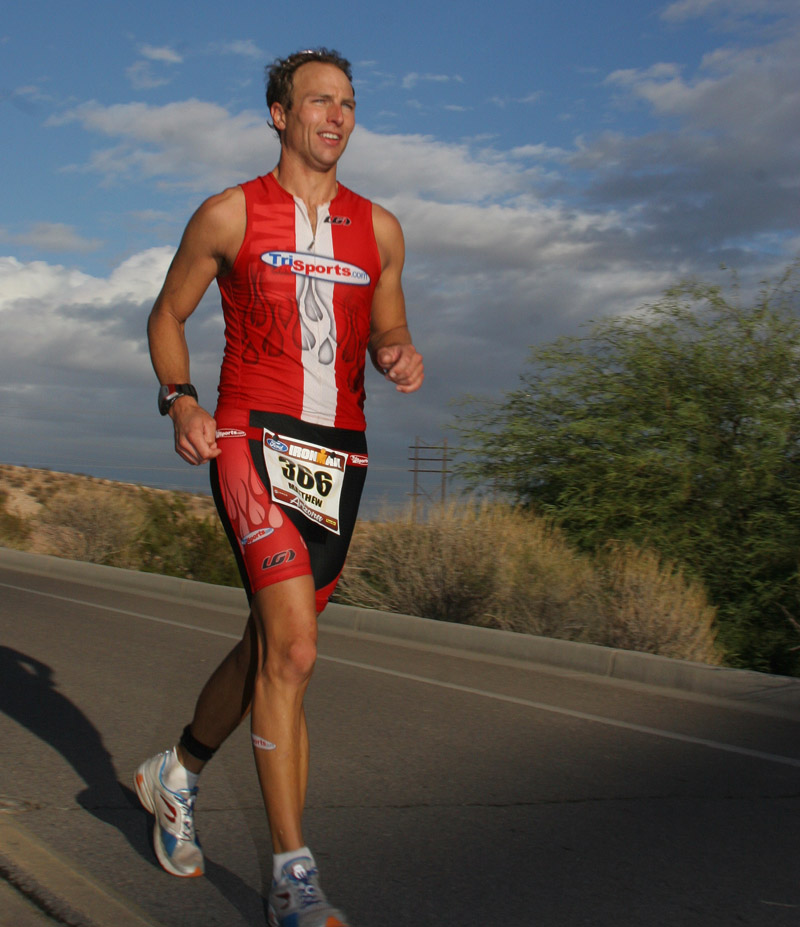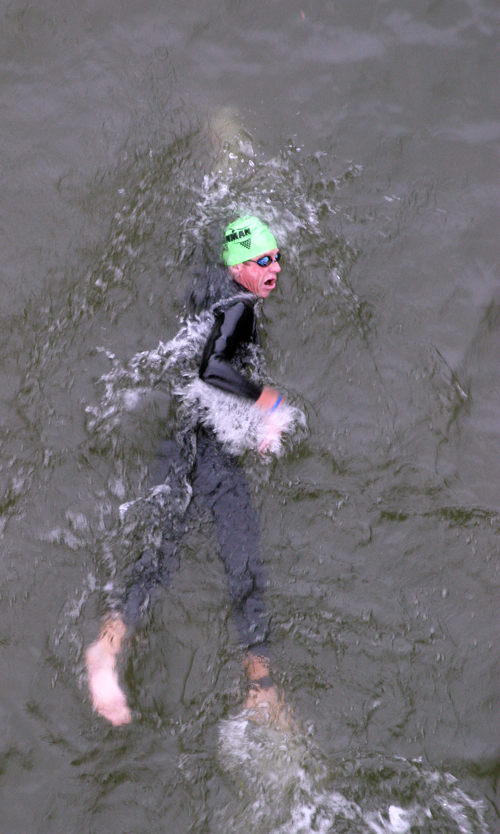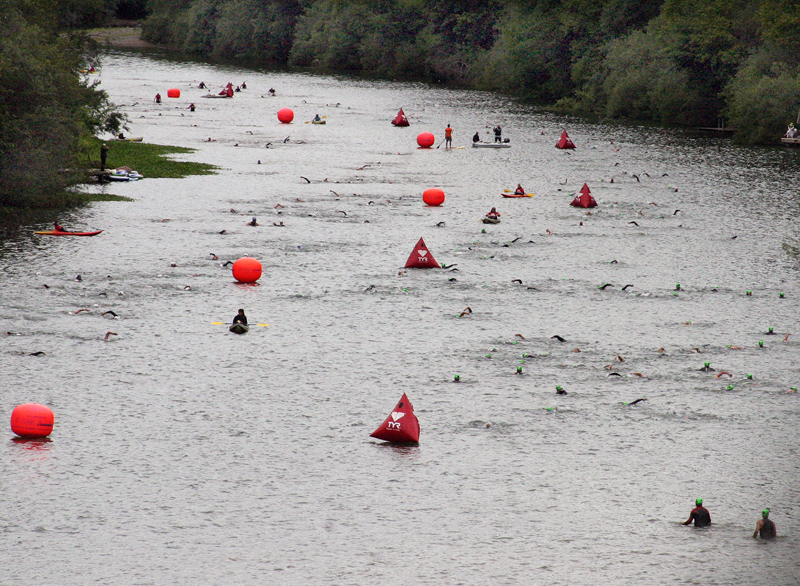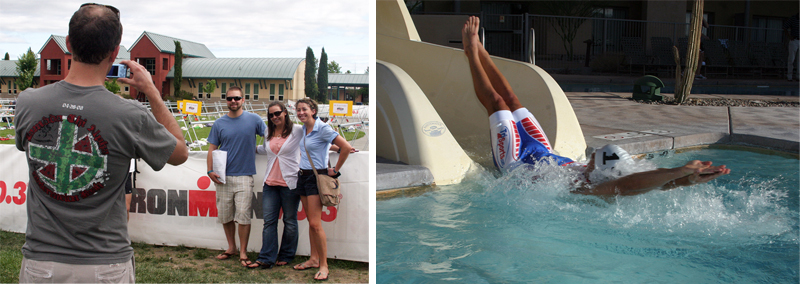By Tom Demerly with Contributors from beginnertriathlete.com Forum.

First timers get anxious when they don’t know what to do at their first race. What to bring? What to leave home? Where to go? How to set up a transition area?
We surveyed contributors to the beginnertriathlete.com forum for tips on what to know before your first race and added a few of our own. Here are the top tips for a great first race.

1. Learn the Sport.
The user named “Red Corvette” on beginnertriathlete.com forum mentioned that volunteering at an event before your first race is an excellent way to see how a triathlon works in person. Many of your questions about what to wear, how to set up a transition and how the race flows will be answered if you work a local event as a volunteer. You’ll also get a feel for how much work goes into producing a triathlon.
Reading about the sport will also familiarize you with the technical language. The Cycling Hall of Fame Coach Mike Walden once said “Be a student of the sport”. Walden’s insight, along with great coaches like Michael R. Rabe, reinforces the need to own the knowledge and understand the language of our sport.

2. Learn and Do Bike Maintenance.
Whether you race boats, cars, airplanes or triathlons your performance will be better if you know how to maintain your equipment and do it regularly. Racing bikes are different from the bikes we had as a kid. They require more maintenance for best performance since they are optimized for racing. Even entry level bikes benefit from basic maintenance. Bike maintenance is as simple as learning to air your tires, keep your bike clean and lubricate your drivetrain. If you own the knowledge you will be less dependent on others, more confident and self-sufficient on race day and during training. You can learn bike maintenance from classes at your local dealer and from books and cycling/triathlon clubs. Inspect your equipment regularly to insure it is safe and to optimize performance. The photos above are all from bikes headed to events. Had they not been serviced before the race there may have been race-ending technical problems.

3. Know How to Use Your Equipment.
Take responsibility for being certain your helmet is adjusted correctly and is not damaged. Know how to be mechanically self-sufficient on the course. The most common problems are flat tires and dropped chains. Be sure you have practiced changing your own flats before race day. Know how to avoid your chain falling off and practice how to get it back on if it happens. Practice fixing these problems before race day to improve your confidence and self-reliance. If you do get into to trouble on race day, you can get yourself out. Be certain your helmet is adjusted correctly to provide protection in case of a fall. When you own the knowledge you don’t need to fear the outcome. This makes you a more relaxed, confident athlete.

4. No New Equipment on Race Day.
The bling at the race expo is hard to resist. If you just got a new bike after waiting for it for weeks it is nearly impossible to resist riding it on race day. Any experienced athlete they will tell you, “No new equipment on race day”. It takes time to become familiar with new equipment. New bikes need break in, fitting and adjustment. New shoes may cause blisters and goggles may leak. On race day, go with what you know. New equipment almost never provides an advantage on race day, but frequently creates problems. Remember the investment in time and entry fees you’ve made in your race. It isn’t worth risking on untried equipment, no matter how cool it is. For nutritional products be sure to try them in training before you use them on race day. It’s wise to know what products will be used in the aid station at your race and practice in training with them before race day.

5. Do Some Open Water Swimming Before Race Day.
Almost every new athlete agrees the swim is the greatest source of fear. Username “Brown dog us” from beginnertriathlete.com’s forum recommended you “Do an open water swim before race day.” That is solid advice.
If you put on your wetsuit, goggles, a swim cap and ear plugs before race day and practice open water swimming in a safe location with a partner and/or life guard you will be less anxious on race day. This is especially important when swimming with a wetsuit for the first time. It is common for new triathletes to experience hyperventilation and anxiety during their first wetsuit swim. Some athletes report feeling their breathing constricted, even when the wetsuit fits correctly. Be certain to get in the water, even if it is only the pool, before race day to familiarize yourself with how your equipment feels before race day.

6. Get to the Race very Early.
Forum contributor “goosedog” from the beginnertriathlete.com forum said to get to the porta-johns early. Know the race schedule by looking on the event website in the week prior to the race. Get to the race as early as you can to avoid traffic jams, get a good place in transition, have a leisurely time setting up and gain access to clean bathroom facilities. Always bring extra toilet paper and wet wipes- enough to share with other competitors who may not be as well prepared. It helps remove one more layer of worry over small comforts on race day and makes you feel more prepared.

7. Know the course, Go to the Race Meeting and Learn the Transition Area.
While every race director makes an effort to mark the race course well the USAT rule says it is “incumbent on the athlete” to know the course and follow it. That means if you go off course it is your fault– not the race director’s- even if the course is poorly marked. If you know the course you will be more confident and safer. The pre-race meeting may offer important insights on weather, course direction, rules and officiating. It may also provide an opportunity to ask questions about the race.

8. Use a Simple Transition Set-Up.
Contributor “bryancd” of beginnertriathlete.com’s forum said simply “K.I.S.S.” Leave the buckets and folding stools at home. Be considerate of the other athletes in the transition area and remember transitions get congested with bikes and gear. As athletes get more experienced their transition set ups tend to look more alike and have less gear in them. Learn the flow of the transition area so you move through it efficiently with other athletes and don’t create delays or bottlenecks. Forum contributor on beginnertriathlete.com’s forum named “Shop Cat” suggested to “Be sure your bike is in an easy gear out of transition” so pedaling is easier as you begin.

9. Put your Wetsuit on Early and get a good Warm-Up Swim.
Wetsuits are hard to get on correctly alone and need to be “swam into place” for best performance. If you get to the race early enough you can ask for assistance from other athletes to help you zip your suit up. Then you have time to get in the water, get a layer of water between you and your wetsuit for best performance and make final adjustments so you are comfortable in your swim. Warming up by swimming in the water makes you more confident and reduces anxiety during crowded swim starts.

10. Know the Swim Course. Start in the best place for your Swim Speed.
You may have heard stories of athletes who panic when they get “swam over”, bumped or lose their goggles during a crowded swim start. Finding a good location to start based on your experience level can eliminate any problems. If you know the swim course you can avoid the congested areas and save time by swimming more efficiently. This also gives you better confidence in the swim and reduces anxiety.

11. Understand Drafting Rules.
Know what the USAT drafting rules are from the USAT website and the USAT rule book that is mailed to every USAT member. The contributor to beginnertriathlete.com’s forum named “Duder5189” mentioned to “Learn the rules of the bike leg.” It’s a strong tip.
Understand what “position violations” are and how to overtake. Other athletes may draft during the race- intentionally or accidentally- but it is up to you to observe the rules on your own to have a race you can be proud of.

12. Take Time to Celebrate the Day and Have a Good Time!
You only have one first race. “Blbriley” from beginnertriathlete.com forum mentioned to, “Have fun, set realistic goals and be adaptive.” His advice is solid since events on race “Give yourself credit for beginning the sport and expect to learn by making minor mistakes. It is part of becoming a better triathlete.”
Remember that triathlons are swimming, cycling and running- the things we did playing when we were kids. Keep the sport in perspective and enjoy the privilege of being able to participate. Triathlon is a tough sport but it is filled with fun people, places and experiences. The contributor named “New Clydesdale” put the experience in fine perspective: “This is your first race. It is not likely to be your last. It will not likely be your best. Come, race, learn, enjoy!” Make your first race a day to remember!
